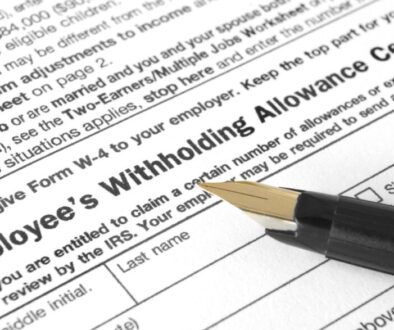Maximize Your Savings: Tax Tips for New Parents
Maximize Your Savings: Tax Tips for New Parents
Navigating the world of taxes can feel daunting for anyone, but new parents face a unique set of financial challenges and opportunities. Incorporating tax tips for new parents into your tax preparation process can lead to significant savings, making it crucial to understand the best strategies to maximize your returns. Given the complexities of tax laws and the potential for beneficial deductions and credits, it’s essential for new parents to arm themselves with the knowledge to help ensure they’re not missing out on valuable savings.
This article will explore the necessary documentation new parents should gather, highlight important tax credits and deductions specifically beneficial to them, and suggest updates to financial information and plans that can lead to further tax advantages. Additionally, it will offer additional tips tailored for new parents aiming to navigate the tax season successfully. By providing a roadmap of these key areas, the article aims to demystify tax preparation for new parents and equip them with the tools needed to enhance their financial well-being.
Get the Necessary Documentation
For new parents, obtaining the necessary documentation for tax purposes is crucial. This includes securing a Social Security Number (SSN), birth certificate, and, if applicable, adoption documentation.
Social Security Number
Applying for your child’s SSN at the hospital is straightforward. During the birth certificate application process, parents are asked if they wish to apply for an SSN. Even if both parents’ SSNs are not known, they can still proceed with the application. Alternatively, parents can apply online at www.ssa.gov/number-card and complete the process at a local Social Security office.
Birth Certificate
A birth certificate is essential not only as proof of identity but also for tax purposes. It is required to claim your child as a dependent. If the child was born in the U.S., the birth certificate or a U.S. hospital record of birth must be presented. For children born abroad, documents such as a foreign birth certificate or a Consular Report of Birth Abroad are necessary.
Adoption Documentation
For adopted children, it’s possible to apply for an SSN before the adoption is finalized. However, it may be advisable to wait until after the adoption to apply with the child’s new name. Ensure all adoption-related expenses are documented, as these can qualify for tax credits. Keep detailed records, including receipts and legal documents, to support any claims.
Organizing these documents early can help streamline your tax preparation and ensure you maximize potential tax benefits for your family.
Important Tax Credits and Deductions
For new parents, understanding various tax credits and deductions can significantly aid in financial management. Here are some key areas to consider:
Child Tax Credit
Families may reduce their federal tax by up to $2,000 per qualifying child under the age of 17. This credit is refundable for those meeting specific income thresholds, which means it can increase your tax refund or reduce the amount you owe.
Earned Income Tax Credit
This credit benefits low- to moderate-income workers and families, potentially decreasing the taxes owed and, in some cases, offering a refund. Eligibility depends on income levels and whether you have qualifying children.
Adoption Tax Credit
Parents who adopt can claim a nonrefundable credit for qualified adoption expenses. For 2023, the maximum credit is $15,950 per child. This credit applies to a range of expenses, including adoption fees and travel costs.
Child and Dependent Care Credit
If you are paying for child care to work or looking for employment, you might qualify for this credit. It allows up to $3,000 of childcare expenses for one child or up to $6,000 for two or more children to be claimed, helping reduce your tax liability.
Update Financial Information and Plans
For new parents, updating financial information and planning is crucial to manage the changes in tax liabilities effectively. Here are essential steps to consider:
- W-4 Form: Review and update Form W-4 with your employer to adjust tax withholdings. This ensures the right amount is withheld from your paycheck, reflecting your new family status.
- Withholding Adjustments: Use the IRS Withholding Estimator to check if the current withholdings align with your tax liability, especially after major life events like childbirth. Adjust accordingly to avoid owing taxes or overpaying.
- Flexible Spending Accounts (FSAs): Enroll in FSAs to utilize pre-tax dollars for medical and dependent care expenses, reducing taxable income. Ensure you understand the eligible expenses and use the funds within the plan year.
- 529 College Savings Plans: Consider opening a 529 plan to save for your child’s education. Contributions grow tax-free, and withdrawals for educational expenses are not taxed. Review different plans to find one that offers the best benefits and flexibility for your situation.
These steps will help new parents optimize their financial plans and take advantage of available tax benefits.
Additional Tips for New Parents
For new parents, managing tax-related expenses effectively can provide significant financial relief. Here are some additional tips to consider:
Track Medical Expenses
Medical expenses can pile up quickly. Parents should keep meticulous records of all medical expenses, including payments to healthcare providers and transportation costs related to medical care. Remember, only expenses exceeding 7.5% of your adjusted gross income are deductible, so tracking every expense is crucial.
State Tax Benefits
Don’t overlook potential state-specific tax benefits.
Consult a Tax Professional
Navigating the complexities of tax deductions and credits can be challenging. Consulting with a tax professional can help ensure you are taking full advantage of the tax benefits available to your family, including those related to healthcare expenses and state-specific credits.
Conclusion
As new parents embark on this exciting and challenging journey, it becomes crucial to leverage the available tax benefits and adapt to the evolving financial landscape. Remembering to organize essential documents, explore tax credits, and make necessary adjustments to financial plans will not only mitigate the stress associated with tax season but also pave the way for a secure financial future for your growing family. While the article has provided a roadmap, seeking advice from tax professionals can further tailor these strategies to your unique situation, ensuring you maximize your savings and support the bright future ahead for your child.




